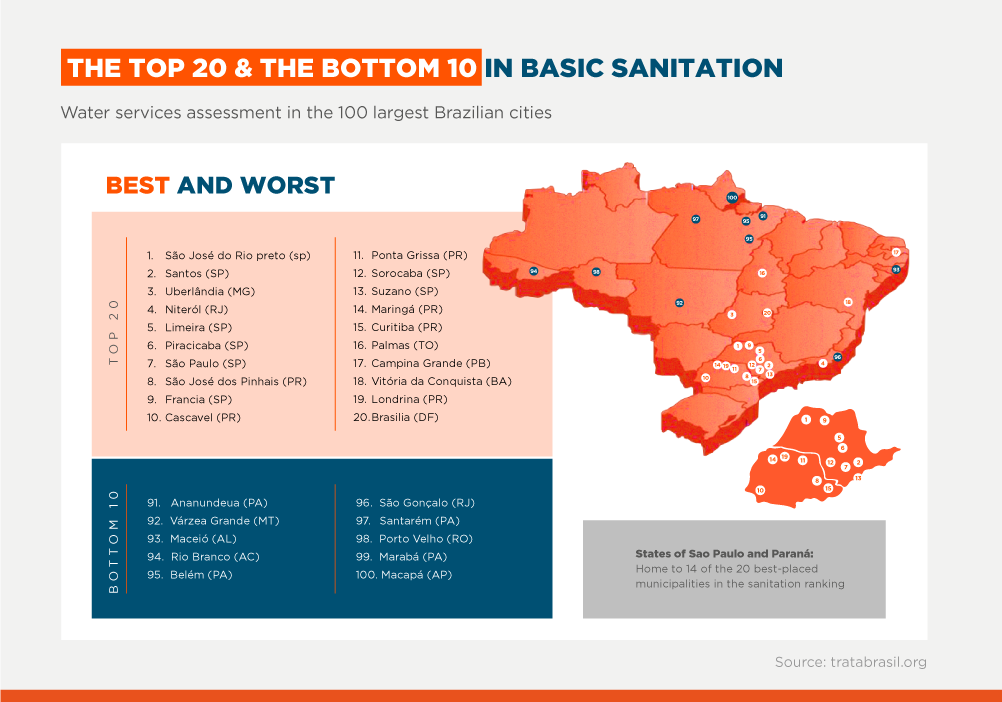Helping Brazil to Cut Down on Water Losses

Brazil, a country with abundant water resources but also significant regional imbalances when it comes to access to clean water and sanitation, has surprisingly high rates of water waste.
Even though Brazil is home to the world’s largest river, the Amazon, as well as many other large watercourses, the water and sanitation sector is among the least developed in the country, largely as a result of decades of chronic underinvestment. Data from 2021 indicates that Brazil still has great difficulties with sewage treatment, to the point that only just over 50% of waste water is treated.
This means that more than 5,500 Olympic swimming pools of untreated sewage are dumped into nature daily, in Brazil alone.

Given this predicament, it’s no wonder that reducing water losses is a key priority for many Brazilian water and sanitation companies, as it can help to conserve precious resources and improve the sustainability of their operations.
According to Trata Brasil Institute ranking, the 100 largest Brazilian cities, which concentrate 40% of the country's population, on average managed to reduce the loss of water in the distribution systems, but there is still much to be done.
Within this universe, there are cities with alarming loss rates in distribution, above 70%, while the national average stands at 40.25%. Many companies are investing in innovative technologies and management practices to reduce water losses and improve the efficiency of their systems, but the role of small and medium-sized enterprises (SMEs) is just as important here.
SMEs are key players in the water and sanitation sector, particularly as subcontractors of large companies, both private and public ones. SMEs often provide specialized services, personnel and equipment that large companies may not have in-house, and they can be an important source of innovation and competition in the sector.
Many of these companies already operate with performance-based contracts, ensuring that the results promised by the contracted company are achieved, since the payment is made based on the effective savings generated by the implementation of the proposed solutions. This means that, if the proposed solutions do not generate the expected savings, the contracted company does not receive full payment. As the key performance indicators used to measure the performance of the contractors are very accurate, they can also be used to scale the social and environmental impact of the initiatives.
However, SMEs operating in the water and sanitation sector may face challenges related to accessing capital to fund such initiatives and also need support to improve their governance in order to be part of this moment of market growth.
IDB Invest supports initiatives in the water and sanitation sector. In this context, a new, innovative water and sanitation fund identified this opportunity and aims to bridge that gap. The fund will first focus on the massive Sao Paulo market before it expands to the rest of Brazil.
The fund will provide financing to SME subcontractors of large water utility companies to develop projects with a specific focus on water loss reduction, energy efficiency and water treatment, and will be managed by a reputable fund manager with extensive experience in the sector.
IDB Invest, together with other investors, has committed up to R$80 million worth of funding, and is also providing technical assistance focused on climate and sustainability, as well as corporate governance for the fund’s SME clients.
Aside from its positive environmental impact, the fund will promote private sector involvement in Brazil’s water and sanitation sector. It aligns with the IDB Group’s water and sanitation approach as it promotes universal access to these basic needs, while promoting private sector participation, efficient service delivery, continuous improvements in sector institutions and governance, and innovation to enhance aspects including efficiency and access.
LIKE WHAT YOU JUST READ?
Subscribe to our mailing list to stay informed on the latest IDB Invest news, blog posts, upcoming events, and to learn more about specific areas of interest.
Subscribe



